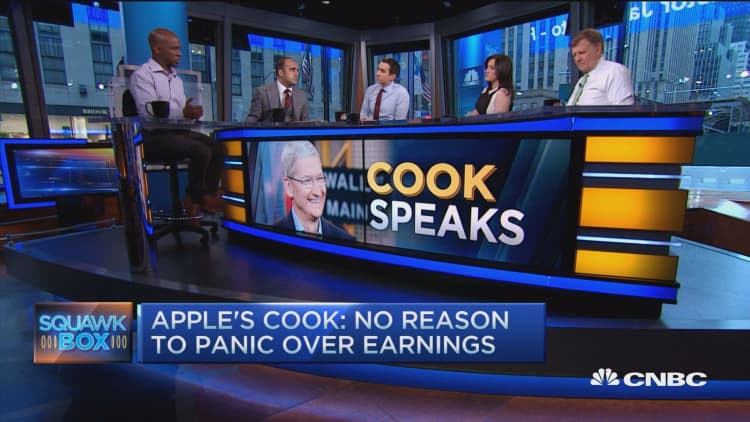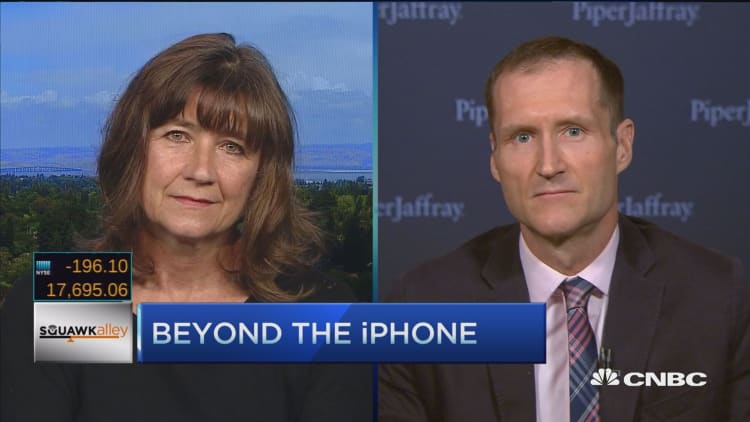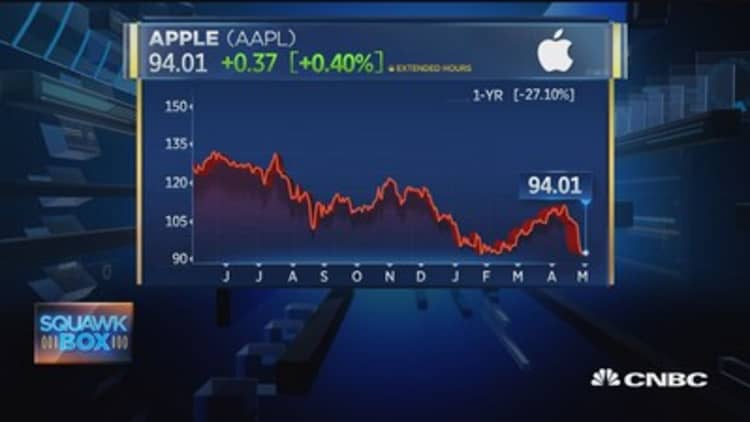


Credit Suisse analyst Kulbinder Garcha said Tuesday he is sticking with his $150 price target on shares of Apple, even as the stock languishes near a 52-week low.
Shares of Apple have sunk since the company reported disappointing earnings and guidance last week. In the fiscal second quarter, Apple reported its first decline in quarterly revenue growth in 13 years and saw its iPhone sales fall from the previous year for the first time ever.
Apple's stock closed Monday's session at $93.64 a share. The average target price on the shares is about $125, according to FactSet data.
But many of the factors hurting Apple's share price are temporary and can be reversed in the next six to 12 months. Garcha said.
"On the iPhone side, what's really hurting demand is the rate of upgrade. Apple had an accelerated rate of upgrade with the iPhone 6 cycle. This year, that's normalizing," he told CNBC's "Squawk Box."
Apple is expected to release the latest iteration of its smartphone, the iPhone 7, later this year.
Garcha said it's important to remember that iPhone users typically replace their devices in 13 months, and 90 to 95 percent of them stick with the brand. If those trends hold, iPhone unit sales can recover, he said.
With the stock trading at roughly 9.5 times forward earnings, Apple's valuation is in line with that of other handset makers, he said.
"What is different about this business is very few companies have the retention that Apple has," he said.
To disrupt Apple, a rival would have to introduce a better user experience across computer, mobile and TV platforms at a lower price, Garcha said.
As for international growth, Apple stands to generate another $90 billion to $95 billion in the next five years if it can replicate its success in China among consumers who can spend an average of $600 a year on Apple products, according to Credit Suisse.
To do that, Apple needs to extend its reach in markets like India, Brazil and Russia, where it currently lacks direct retail presence and local support, Garcha said.
Gene Munster, senior research analyst at Piper Jaffray, said the iPhone differs from the iPad — a product that has seen sales decline for two years — because people use handsets more frequently. The iPad benefited from pent-up demand when it was released, but that demand has now been satisfied and has died off, he said.
After nine years of following the iPhone, analysts have a good handle on how the next cycle will play out, Munster said.
"This next wave of people that are upgrading, this echo effect from the iPhone 6, is about 30 percent bigger than the iPhone 6s," he told CNBC's "Squawk Alley" on Tuesday.
Disclosure: Credit Suisse makes a market in the securities of Apple and has managed or co-managed a public offering of securities for Apple within the last 12 months.



